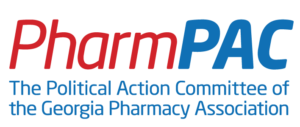GPhA to insurance commissioner: Oppose Humana-Aetna merger
In a public-comment letter to State Insurance Commissioner Ralph Hudgens today, GPhA urged the commissioner to oppose the proposed merger of health insurance titans Humana and Aetna.
This is the final day to submit written comments to the Insurance Commissioner. A public hearing on the proposed merger is scheduled for this coming Tuesday, July 26 at the State Insurance Commission in downtown Atlanta. There, among other groups, the Medical Association of Georgia is expected to testify in opposition to the merger.
The entire text of GPhA’s letter to Commissioner Hudgens follows here.
July 21, 2016
Commissioner Ralph T. Hudgens
Office of Insurance and Safety Fire Commissioner
Two Martin Luther King, Jr. Drive
West Tower, Suite 704
Atlanta, Georgia 30334
Re: Aetna, Inc./Humana, Inc. proposed merger
Dear Commissioner Hudgens,
Thank you for the opportunity to be heard on this important issue. The Georgia Pharmacy Association (“GPhA”), which represents the interests of Georgia pharmacists in all practice settings, is extremely concerned that this proposed merger will have a negative impact on Georgia patients as well as Georgia healthcare providers.
Specifically, based upon the information submitted, there appears to be strong evidence that “the effect of the acquisition may be substantially to lessen competition” with regard to individual, small group, large group, and Medicare insurance. These concerns have been raised in Medical Association of Georgia CEO Donald Palmisano’s March 1, 2016, written correspondence to your office. GPhA shares the concerns raised in that letter and urges its consideration prior to any decision regarding the proposed merger.
Consolidation in the insurance industry, including health insurers and pharmacy benefit managers with whom health insurers contract (PBMs), leaves Georgia patients and Georgia pharmacies particularly vulnerable. As a result of little to no bargaining power, pharmacies find themselves in the position of entering into take-it-or-leave-it provider agreements which often, among other things:
- Force participating pharmacies to charge patients more than a drug actually costs and pass along the excess to the PBMs;
- Prevent participating pharmacies from informing patients of lower-cost alternatives;
- Force participating pharmacies to accept negative reimbursements on prescriptions;
- Force participating pharmacies to offer pharmacy services beyond the filling of prescriptions without reimbursement;
- Withhold money from pharmacies in connection with unattainable metrics;
- Charge pharmacies different types of fees, including direct and indirect remuneration fees, often undisclosed at the time of claim processing (these can amount to thousands and thousands of dollars per year);
- Prevent participating pharmacies from being reimbursed for compounded products; and
- Prevent participating pharmacies from being reimbursed for refills or prescriptions beyond a thirty (30) day fill.
These contracts typically contain arbitration clauses, confidentiality clauses, and the ability of the health insurer/PBM to terminate pharmacies from networks without cause. These provisions have a silencing effect, as pharmacies often fear retaliation and network termination.
Interestingly, Humana Pharmacy Solutions recently promulgated a proposed contract amendment that has garnered the attention and concern of U.S. Congressmen Doug Collins and Buddy Carter. In a press release on the issue, Rep. Collins stated:
Humana, one of the largest insurance providers in the country, currently has a proposal th[at] would require these small pharmacies to lose $5.00 per prescription, up front, with the hope that they will be reimbursed if they meet certain metrics. However, meeting all of the criteria is not a guarantee that the pharmacy will get reimbursed because there are only spots in the top rankings for a few pharmacies. Under this proposal, a pharmacy could meet most of the CMS benchmarks, provide quality customer care, and still not be reimbursed by Humana. Humana’s criteria has little to do with patient care, and everything to do increasing their profit and driving community pharmacies out of the market. Some of these metrics, including “patient adherence” are beyond the control of the pharmacists. Pharmacies already compete for customers and business, let’s not set a precedent to make them compete for reimbursement by insurance companies as well.”
While Humana Pharmacy Solutions does not appear to be actively registered with your office as a pharmacy benefit manager, the company appears to operate in that capacity within the state. The notice addressed by Congressman Collins was sent to participating Georgia pharmacies. In light of actions such as the one described by Rep. Collins, there is real concern amongst Georgia pharmacists that further consolidation will result in even more onerous contractual practices.
Contractual provisions aside, industry consolidation in the health insurance industry has resulted in health care providers being excluded from networks and patients being divested of their choice in healthcare providers. With regard to pharmacy in particular, pharmacies are often excluded from networks, and patients are often forced to use mail-order pharmacies or steered to mail-order pharmacies via incentives such as reduced copays. Indeed, on a daily basis, Georgia pharmacies are unable to fill certain prescriptions for patients with insurance coverage because when they attempt to process the claim, they get a reject code specifying mail-order is required. This, despite the fact that Georgia has an anti-mandatory mail-order statute which provides, among other things, that insurers cannot force insureds to use mail-order; and that “[i]nsureds who do not utilize a mail-order pharmaceutical distributor shall not be required to pay a different copayment fee . . .” See O.C.G.A 33-30-4.3.
The foregoing problems are a result of an already highly concentrated market. GPhA believes this proposed merger, should it move forward, will exacerbate these problems. Unequal bargaining power is a bad thing for Georgia providers and consequently, a bad thing for Georgia patients. Moreover, lack of patient choice does not improve healthcare, it undermines it. As such, GPhA encourages you to exercise your authority under the law and issue an order blocking the proposed merger on the grounds that “the effect of the acquisition may be substantially to lessen competition.”
Sincerely,
Greg Reybold
Vice President of Public Policy & Association Counsel
cc: GPhA Board of Directors
GPhA CEO Scott Brunner, CAE












